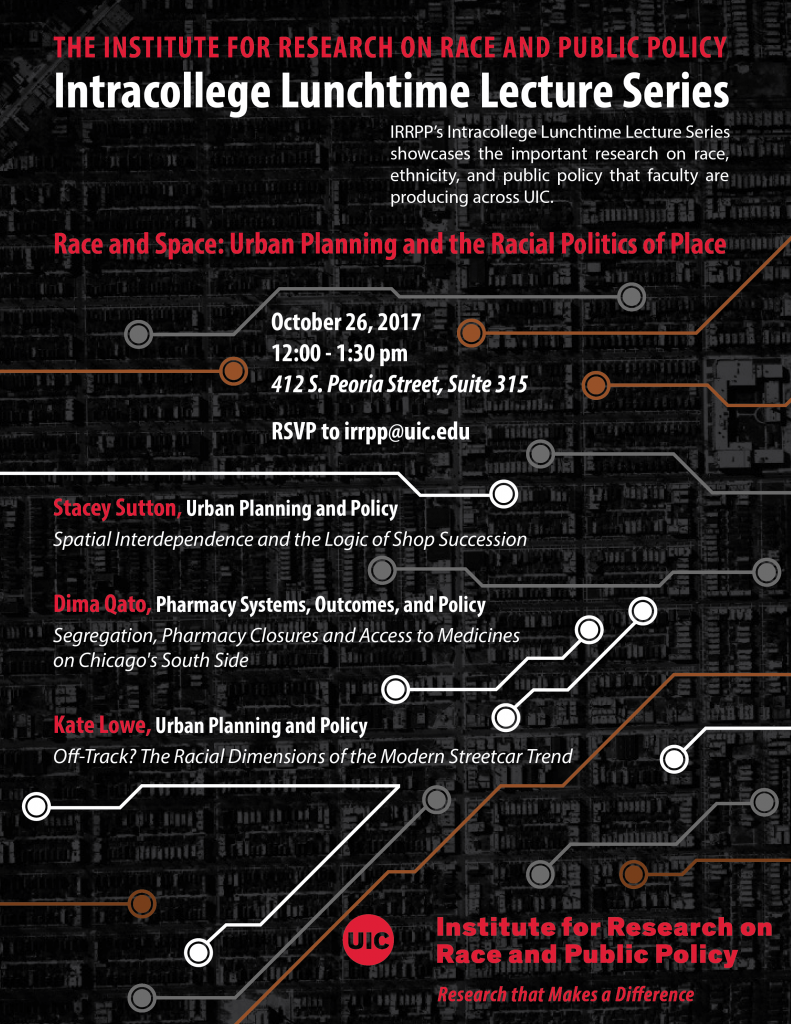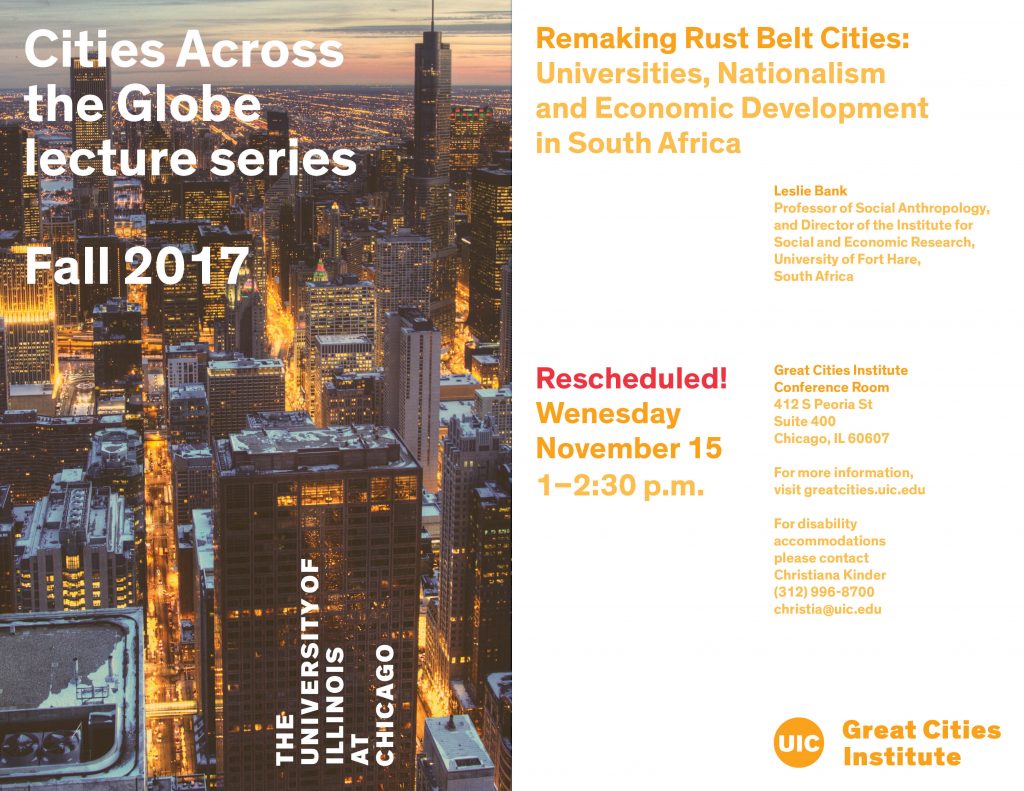
Leslie Bank is a Professor of Social Anthropology and Director of the Institute for Social and Economic Research at the University of Fort Hare. He is the recipient of research fellowships from Fulbright, the Ford Foundation and the Oppenheimer Trust to Emory, Oxford and Cambridge Universities. He also served as a research fellow at the African Studies Centre at the University of Leiden in the Netherlands. His most recent book is entitled After Car Culture: Industry, Nationalism and Universities on the South African Rust Belt, which is in press and due to be published in 2017. He is the author of Home Spaces, Street Styles: Contesting Power and Identity in a South African City (Pluto Press, 2011) and co-editor of Inside African Anthropology: Monica Wilson and her Interpreters (Cambridge Press, 2012). He has edited special journal collections on rural development, land and regional history in Africa. He is a member of the editorial board of the International Africa Institute journal, Africa, and is the current President of the Association for Anthropology in Southern Africa.
–
For disability accommodations please contact Christiana Kinder, (312) 996-8700 or christia@uic.edu.
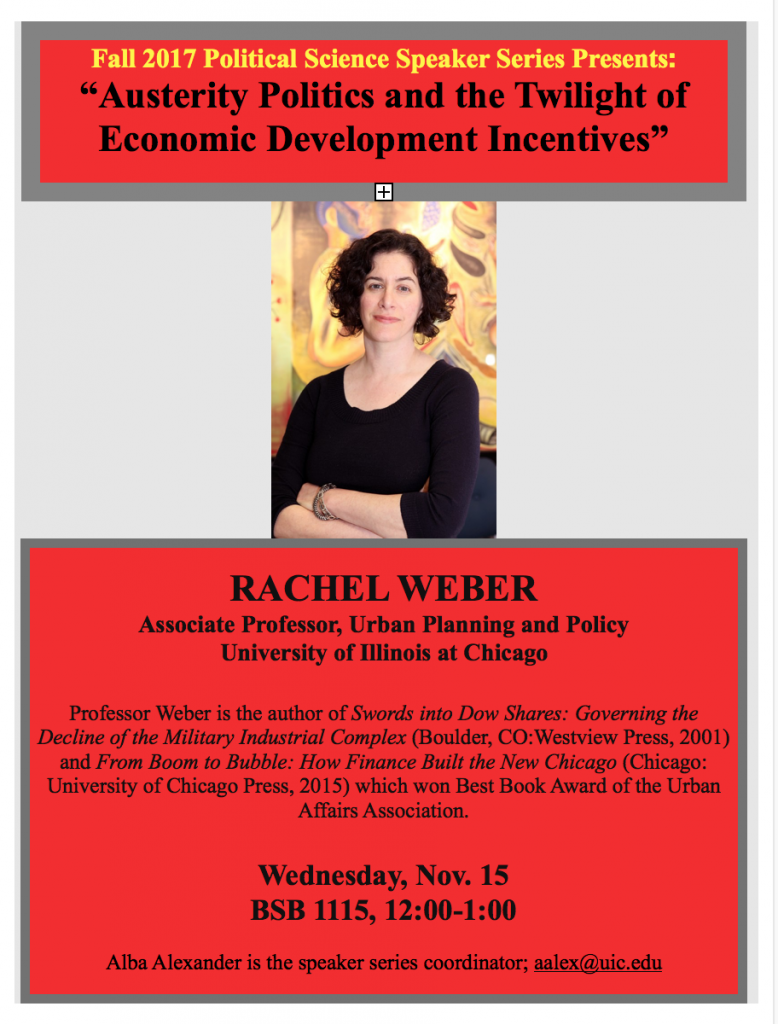

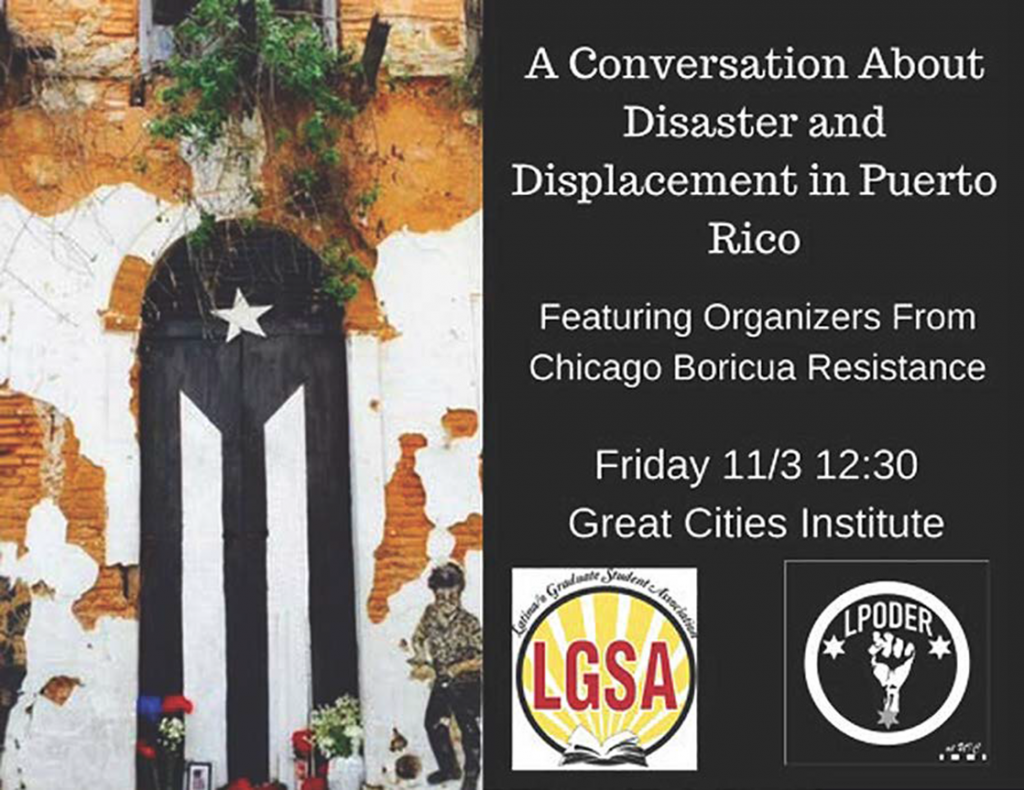
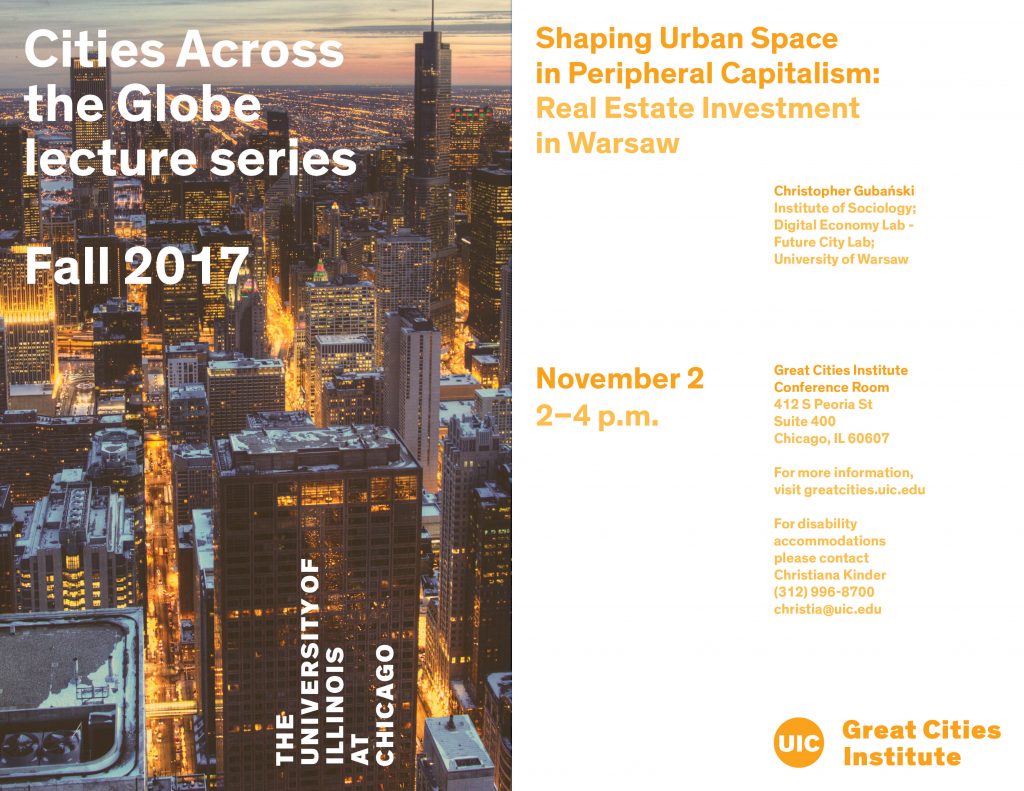
 The Chicago Metropolitan Agency for Planning (CMAP), created in 2005, unveiled the GO TO 2040 comprehensive regional plan for Northeastern Illinois in 2014. On November 2, Bob Dean, CMAP Executive Director for Planning, will share insight on GO TO 2040 and the under-development ON TO 2050, CMAP’s future comprehensive plan. The presentation is part of the Urban Transportation Center’s Fall 2017 Seminar Series. It will be held from 11:30 a.m. to 12:30 p.m. at the Great Cities Institute Conference Room, CUPPA Hall, 412 S. Peoria St., Chicago. The event is open to all.
The Chicago Metropolitan Agency for Planning (CMAP), created in 2005, unveiled the GO TO 2040 comprehensive regional plan for Northeastern Illinois in 2014. On November 2, Bob Dean, CMAP Executive Director for Planning, will share insight on GO TO 2040 and the under-development ON TO 2050, CMAP’s future comprehensive plan. The presentation is part of the Urban Transportation Center’s Fall 2017 Seminar Series. It will be held from 11:30 a.m. to 12:30 p.m. at the Great Cities Institute Conference Room, CUPPA Hall, 412 S. Peoria St., Chicago. The event is open to all.